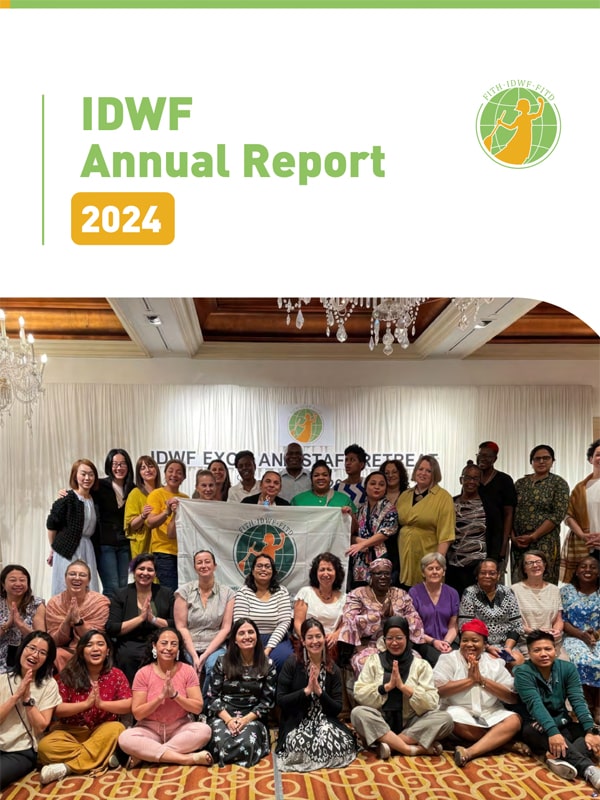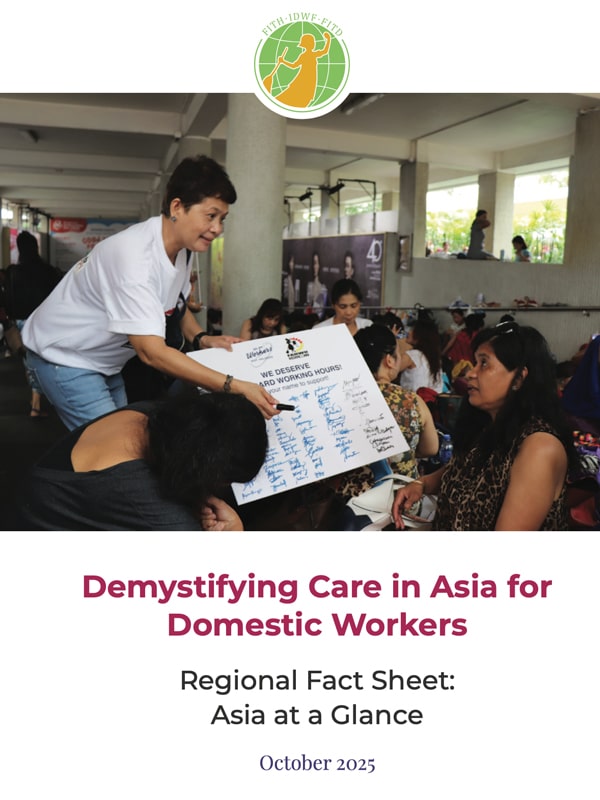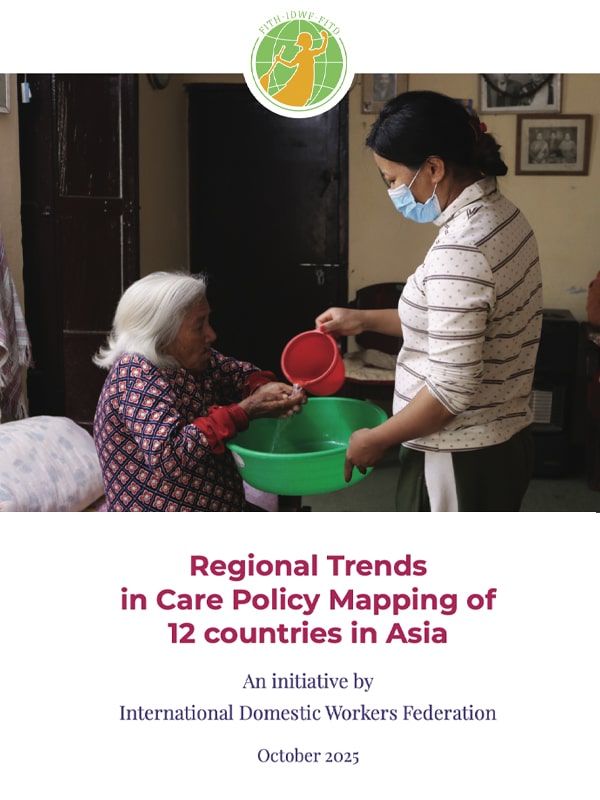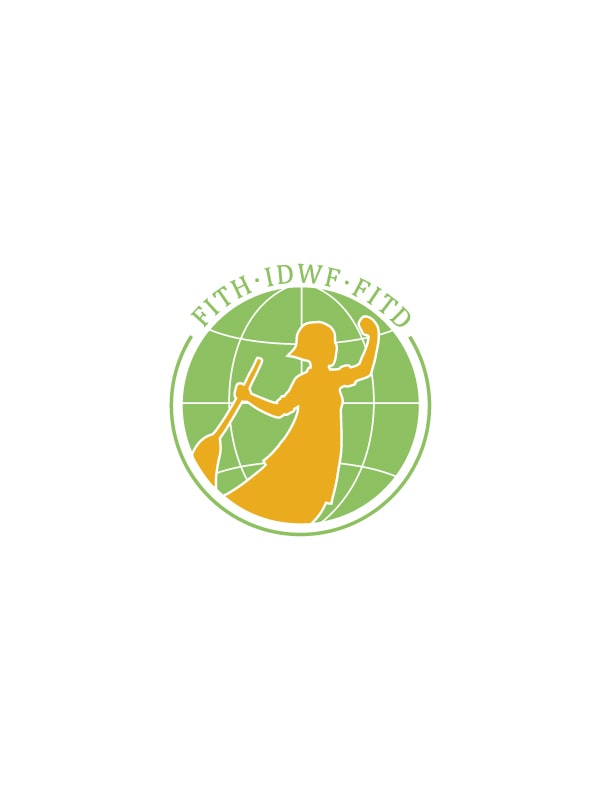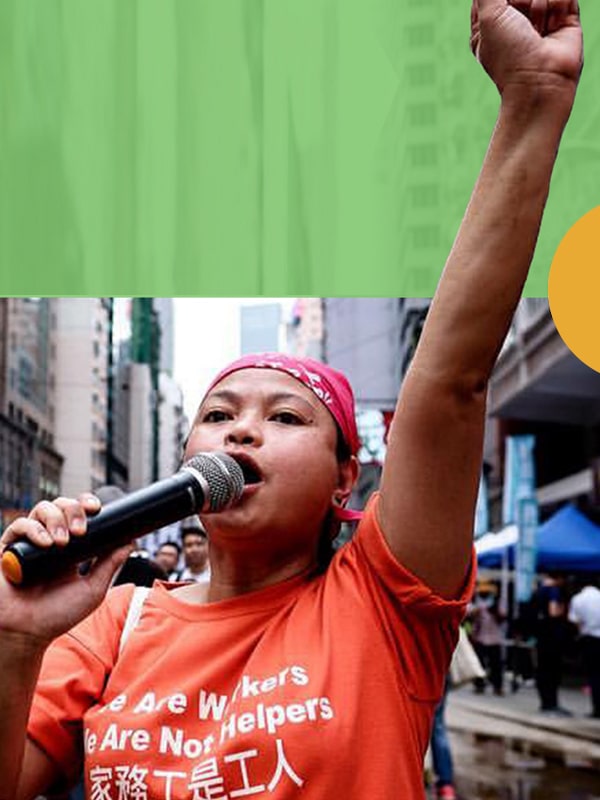Area of expertise: domestic work, workers organising, union building, labour, international migration, gender
Purpose of consultancy:
To conduct a mapping of migration of Nepalese migrant domestic workers in India – where they are, migration pattern, issues, organising potential – strengths and challenges. The research study is to provide IDWF and its affiliates necessary information to formulate its organising strategies of Nepalese domestic workers in India.
Background:
Nepal and India, both with high migrant outflows, are seeing a rise in female migration, especially for domestic work in the Middle East and the Gulf.
As Nepal and India share an open border, Nepalese women migrate to India to work as MDWs, or use India as a country of transit to migrate. The government of Nepal has been imposing on and off bans and lately restrictions as an approach to “prevent” exploitation of migrant domestic workers (MDWs) who are largely women. Currently, the government of Nepal has seven conditions for the countries of destination (CoD) before MDWs can migrate. These conditions include bilateral agreements with Nepal, specific labour laws to protect migrant workers’ rights in CoD, mandatory pre-departure training for women migrants etc). Due to lack of income and other sociocultural and structural barriers faced by grassroot women in Nepal, the government’s bans and restrictions have not prevented women from migrating. Yet, women migrant domestic workers are left with irregular migration channels leaving them vulnerable to abuses, less channels to proper information (ILO, 2020), trafficking and forced labour. Hence, it is important to identify the migration pattern, the locality of MDWs, the situation and issues of Nepalese MDWs in India.
The IDWF affiliates in India have been organising domestic workers including Nepalese-origin and Nepalese speaking migrant and immigrant domestic workers. However, they are still the least organised as they are relatively invisible. IDWF and its affiliates do not have much information about their situation. With the declining economy in Nepal, there probably has been an increase of Nepalese migrants to India, either as destination or as transit.
The IDWF aims at building a strong, democratic and united domestic workers global organization to protect and advance domestic workers’ rights. Organising domestic workers is key to making changes in workers’ lives and situations. Domestic workers despite ethnicity have to be organised in order that they have voices and representations. To organise domestic workers, we need to know where they are and what the workers’ situation is.
To address this, the IDWF, in partnership with its affiliates in India and GIZ, intend to conduct a mapping study to:
- Gather data, migration pattern, locality of Nepalese domestic workers in India, i.e. Understand the movement of migrant domestic workers from Nepal to targeted states in India, and collect their data and information on Nepal MDWs in India; Understand the movement of migrant domestic workers across India into targeted states either for the purposes of i) settling down in India as a country of destination; ii) finding opportunities for migration into foreign countries using India as a country of transit
- Map out where they are working, document their experiences and challenges
- Provide necessary information and data for IDWF and its affiliates in India to develop strategies to organize and empower workers
Deliverables:
In close consultation with the IDWF, the research consultant will:
- Identify and carry out a mapping across selected states in India, which serve as the point of entry for migrant domestic workers from Nepal. The aim of the mapping is to identify locations, groups or populations of Nepali migrants who come into India with the intention of undertaking domestic work, or end up undertaking domestic work either within India as the country of destination or with the intention to travel abroad as migrant domestic workers. These migrant domestic workers may join existing unions, collectives or groups, or may just be settling independently across different neighbourhoods in these identified states.
- Identify states within India where the Nepali migrant domestic workers have shown interest to move to, either with the purpose of settling down with India as the country of destination or travelling abroad as migrant domestic workers.
- Carry out a mapping across these states of destination, for existing Nepali migrant domestic workers (MDWs), for both who may or may not be part of existing unions or migrant worker groups.
- Identify the specific issues being faced by these Nepali MDWs through a format of interviews, focused group discussions and desktop research. These can include migration issues, labour issues, issues of discrimination due to ethnicity, identity, vulnerability to human trafficking etc.
Qualification of the Researcher:
- Must be residing in India during the duration of the research project
- Preferred candidates will be of Nepali origin and can speak Nepali – we also welcome candidates from Darjeeling, Ladakh, Sikkim and states of North-Eastern India
- Open to travelling within India during the duration of the project
- Has minimum 3 years of experience in conducting similar research or mapping studies, in issues related to gender, migration, labour, identity, care economy etc.
- Familiar with workers organising, the trade union movement, labor rights or grassroot worker organizations in South Asia, preferably in Nepal and India migration route.
Duration of the Project: 1st Dec 2025 – 28th Feb 2026
Management and Reporting
The Researcher will report to the IDWF Asia Regional Coordinator and work closely with the program officers and project team.
Application: For interested parties, please send the resume, profile and quotation to info@idwfed.org before 30th November 2025.



